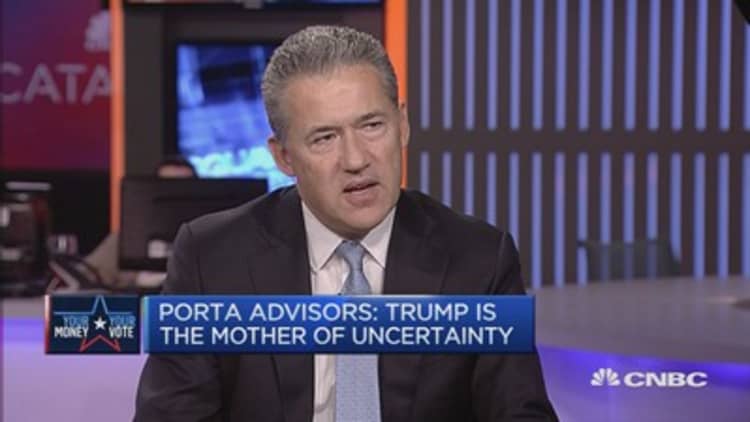
The surprising election win for Donald Trump is raising questions across a range of policy areas, with the future role of monetary stimulus and central banking being one of them.
Trump's policies are "about spending money and then printing money, so it's the end of central banking as we know it since the beginning of the (1980s)," Beat Wittmann, partner and chairman at Porta Advisors, told CNBC on Monday.
The president-elect wants to provide the economy with a strong fiscal stimulus, promising to invest $1 trillion on infrastructure and cutting taxes. But, according to several analysts, this strategy is set to increase inflation as well as the U.S. budget deficit.
A shock boost
"This is a completely inappropriate time to engage in further fiscal stimulus," David Kelly, chief global strategist at JP Morgan Asset Management, said in a note.
This is because the federal deficit is already rising, growing from 2.5 percent of gross domestic product (GDP) in fiscal 2015 to 3.2 percent of GDP in 2016, and if Trump's fiscal plans are implemented in full, national debt would go up to 105 percent of GDP by 2026, he added.
Also, given that the U.S. economy is considered as in full employment, "a shock boost to aggregate demand through tax cuts would likely boost inflation and imports more than domestic production," Kelly said.
If these inflationary pressures materialize, the Federal Reserve could be forced to tighten its policy at a faster pace.
But apart from impacting monetary policy through his economic policies, the president-elect could pave the way for changes inside the Federal Reserve.
"I think she is very political," Trump said in September regarding Janet Yellen, the chair of the Fed. "And to a certain extent, I think she should be ashamed of herself," he added. Trump has often criticized the central bank regarding its independence.
Seven vacancies
According to the Wall Street Journal, Trump could change the formation of the Fed over the next 18 months, during which seven vacancies will be available in the bank's board of governors.
He might also be willing to work with the GOP-controlled Congress to rewrite the laws governing the Fed's structure and disclosures, possibly embracing proposals central bank officials have seen as threats to their policy-making independence, the newspaper reported.


